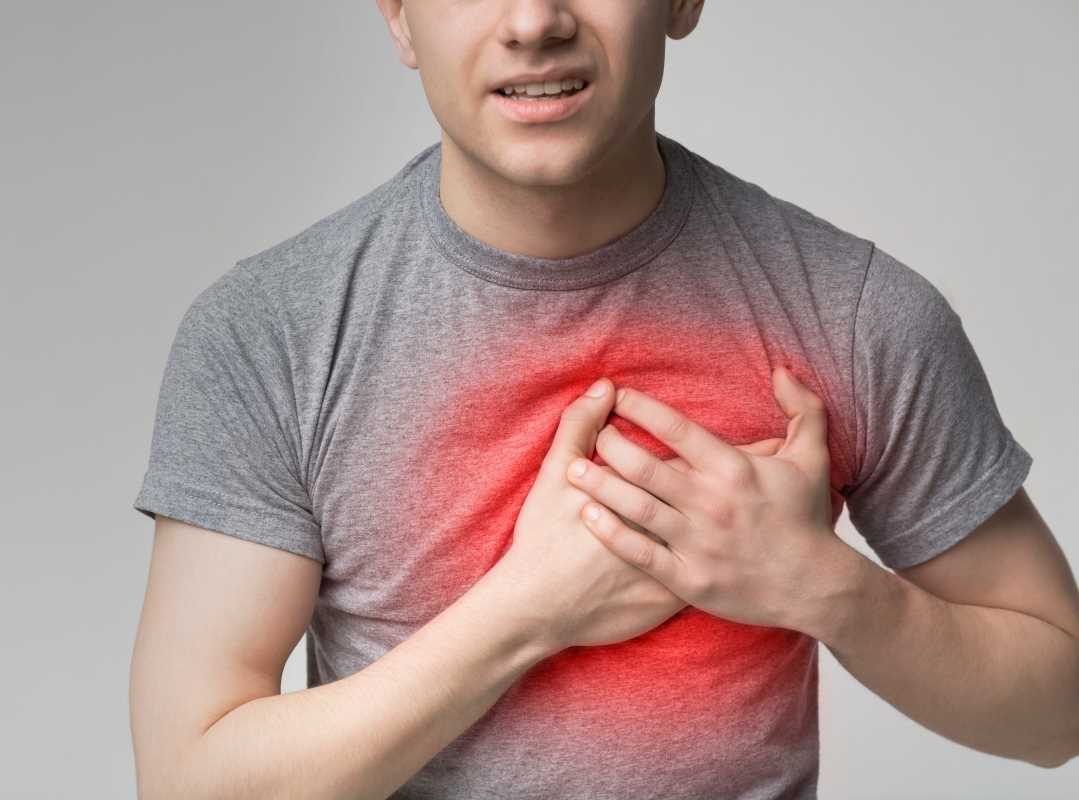Taking care of your heart is one of the best things you can do for your health. After all, your heart works tirelessly every second of every day to keep you alive. But what happens when it starts to struggle? The truth is, your body often sends out clues when something is wrong, especially related to cardiovascular health. Recognizing these early warning signs can make all the difference, helping you act quickly and potentially avoid serious long-term problems. Whether it’s a subtle symptom or something more obvious, being informed about what to look out for can literally save your life. Here’s what you need to know about spotting early signs of cardiovascular issues, along with steps you can take to protect your heart.
1. Fatigue That’s Hard to Explain
We all get tired sometimes, but constant fatigue—not the kind you shake off by resting—is a red flag. If you feel drained from doing daily activities that used to be easy, it might be a sign that your heart isn’t pumping blood as effectively as it should. Blood carries oxygen to your body, and when that flow is restricted, you may feel completely wiped out even when you haven’t done much.
If you notice this pattern, don’t chalk it up to age. It’s worth bringing up with your doctor to rule out any underlying cardiovascular issues.
2. Shortness of Breath
Ever find yourself gasping for air after climbing just a few stairs? Difficulty breathing, even during simple tasks, could point to a heart problem. When blood flow to your lungs becomes limited due to a weakened heart, it makes it harder for your body to get the oxygen it needs.
This doesn’t mean you should assume every little breathless moment is a crisis, but if you find it happening often or in situations where it never used to, it’s a good idea to get checked out.
3. Chest Discomfort or Pain
This one is hard to miss, but it’s not always as dramatic as you might think. Many people imagine heart-related chest pain as a crushing sensation like you see in movies, but it can also be mild or feel like pressure, burning, or tightness.
Sometimes the pain may even show up in other parts of your body, like your arms, shoulders, neck, jaw, or back. If you notice this kind of discomfort, especially if it comes and goes with activity or stress, take it seriously. Chest pain is one of the most common early signs of cardiovascular problems.
4. Swelling in the Legs, Ankles, or Feet
Swelling in your lower limbs, medically known as edema, is another symptom that might signal something is off with your heart. When your heart isn’t pumping properly, blood can back up in your veins, causing fluid to build up in your tissues.
This kind of swelling can also make your shoes feel tighter or leave noticeable indentations if you press on the area. While swelling can result from things like standing for long periods, persistent or worsening swelling needs attention.
5. Irregular or Rapid Heartbeat
Feeling like your heart is racing, skipping beats, or fluttering in your chest can be quite unnerving. An irregular heartbeat, also called arrhythmia, might indicate an underlying cardiac condition. Sometimes, it’s nothing serious, but other times it can lead to bigger problems if left unchecked.
If you feel these irregularities often, or if they’re accompanied by dizziness or fainting, don’t hesitate to reach out to a healthcare professional.
6. Dizziness or Lightheadedness
Have you experienced moments of dizziness, like the room is spinning or you might pass out? This can happen for various reasons, but it’s also one of those symptoms you shouldn’t brush off.
When your heart isn’t functioning well, your brain may not get as much oxygen-rich blood as it needs, leading to that unpleasant lightheaded feeling. Consistent episodes of this could be a sign that something isn’t right with your cardiovascular system.
7. Nausea or Upset Stomach
You might be surprised to learn that nausea or stomach pain can sometimes be linked to your heart. This is especially true for women, who may experience these symptoms, along with vomiting, during a heart attack.
If you’re feeling this way without a clear cause, keep in mind that it might not just be that questionable takeout you had for dinner. Monitoring these symptoms in relation to other potential heart issues is important.
8. Sudden Cold Sweats
Cold sweats that seem to come out of nowhere can signal heart trouble. This symptom often shows up when your body is under stress, such as when your heart struggles to function.
It’s a sneaky symptom that many dismiss as anxiety or flu-related. But combined with other signs like chest discomfort or shortness of breath, it could indicate something much more serious.
What You Can Do
Now that you know what to watch for, you might be wondering what steps you can take. Here’s how to stay proactive about your heart health:
- Regular Checkups: Even if you feel fine, schedule routine doctor visits. Early detection is key when dealing with cardiovascular issues.
- Healthy Habits: Eat a balanced diet filled with fruits, veggies, lean proteins, and whole grains. Reduce your intake of saturated fats, sugar, and salt.
- Stay Active: Exercise helps keep your heart strong. Aim for at least 30 minutes of moderate activity most days of the week. Activities like walking, swimming, or gardening can make a big difference.
- Know Your Numbers: Keep track of your blood pressure, cholesterol levels, and blood sugar. These are critical indicators of your heart health.
- Pay Attention to Your Body: If something feels off, trust your gut and get it checked out. It’s better to be safe than sorry.
Your heart is the engine of your body, and keeping it healthy should be a top priority. While it’s normal to experience small aches, tired days, or the occasional dizzy spell as you get older, knowing what’s normal and what might be a warning sign is crucial. Don’t dismiss symptoms or wait too long to take action. If something feels off, speak up and consult with your doctor. By paying attention to these early signs, you can take charge of your cardiovascular health and make choices to protect your heart for years to come.
 (Image via
(Image via





